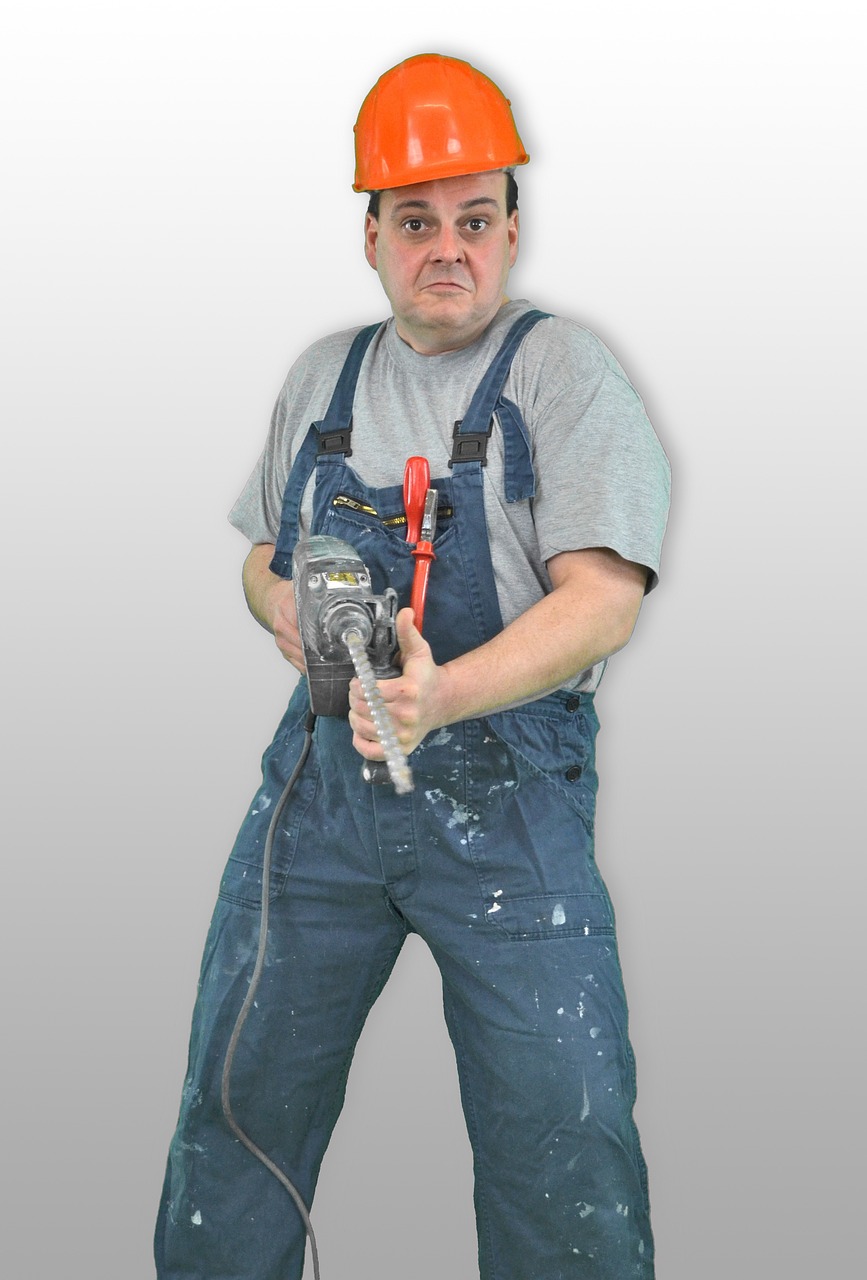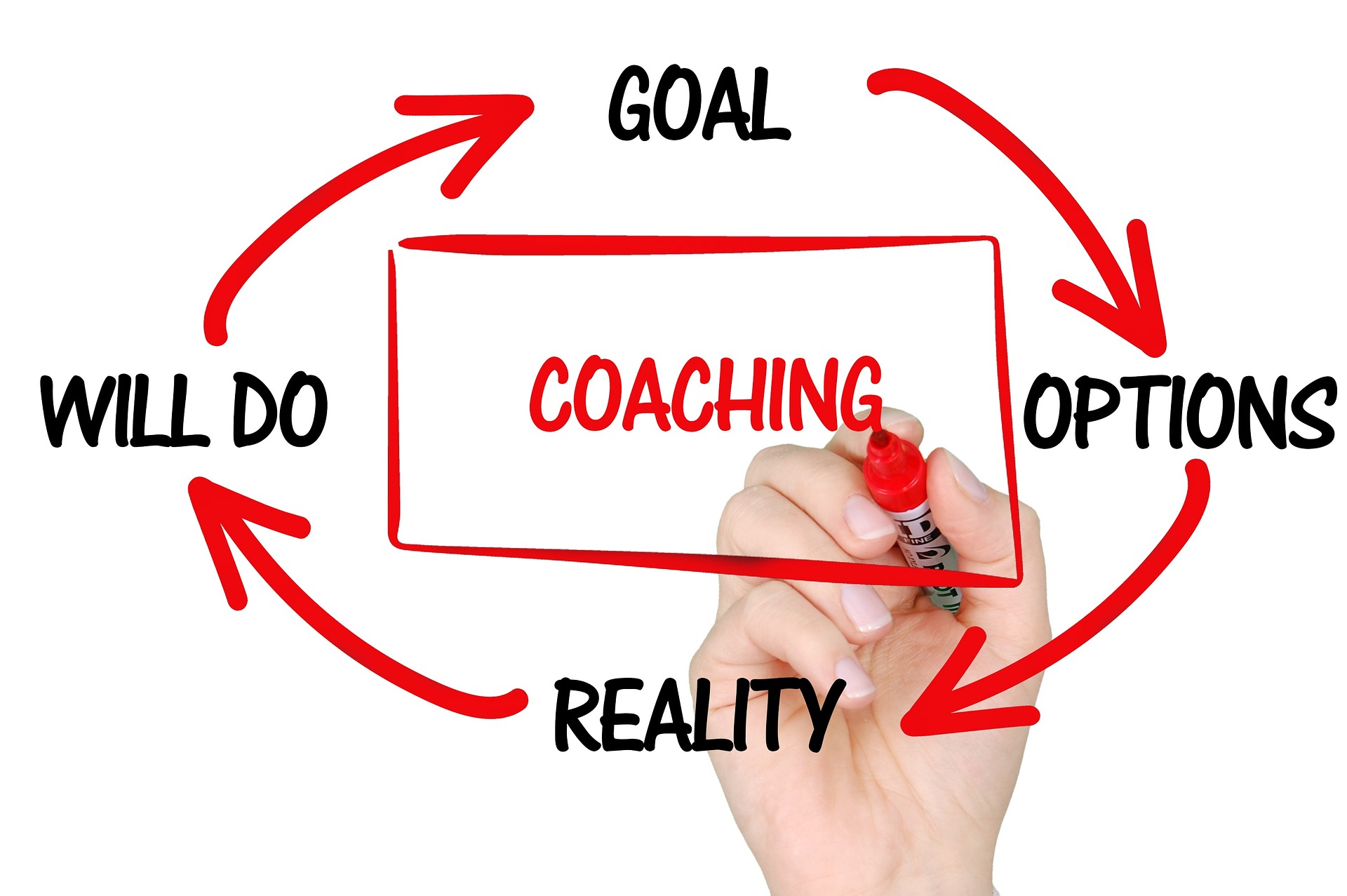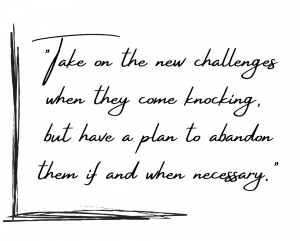Overcoming Limiting Beliefs to Supercharge Your Prospecting
 As a real estate agent, you’re no stranger to the ups and downs of prospecting. Some days, you’re on fire—closing deals and making connections left and right. Other days, it feels like you’re hitting a brick wall, and that inner voice tells you, “Maybe this isn’t for me.” That voice you’re hearing? That’s a limiting belief, and it’s holding you back from reaching your full potential.
As a real estate agent, you’re no stranger to the ups and downs of prospecting. Some days, you’re on fire—closing deals and making connections left and right. Other days, it feels like you’re hitting a brick wall, and that inner voice tells you, “Maybe this isn’t for me.” That voice you’re hearing? That’s a limiting belief, and it’s holding you back from reaching your full potential.
In this post, we’ll explore how to identify and challenge those limiting beliefs so you can enhance your prospecting activities and build better habits. Let’s dive in!
What Are Limiting Beliefs and How Do They Affect You?
Limiting beliefs are the mental roadblocks that keep you from taking action or believing in your success. They often show up as thoughts like, “I hate cold calling,” “I don’t like it when people call my house,” or “People will reject me anyway, so why bother?” These beliefs can seriously undermine your prospecting efforts by triggering self-doubt, procrastination, and outright avoidance.
But here’s the thing: Prospecting is the lifeblood of your real estate business. Whether you’re connecting with potential buyers, following up with past clients, or generating new leads, it’s essential to growing your business. So, if limiting beliefs are standing in the way of your prospecting, it’s time to challenge them head-on.
Identifying Limiting Beliefs
The first step to overcoming limiting beliefs is recognizing them. But how do you identify these sneaky mental barriers?
Common Limiting Beliefs Real Estate Agents Face
- Fear of Rejection – “If I make this call, they’ll probably hang up on me.”
- Self-Doubt – “I’m not as good as the top agents in my office.”
- Perfectionism – “I can’t reach out until I have the perfect script or email ready.”
- Scarcity Mindset – “There aren’t enough clients for me in this market, so why try?”
- Fear of Being Pushy – “If I follow up again, I’ll annoy them.” “I don’t want to be ‘salesy’.”
How to Recognize These Beliefs in Yourself
Ask yourself how you feel before engaging in prospecting. Are you avoiding certain tasks because they make you uncomfortable? Do you often rationalize skipping outreach by telling yourself “It probably won’t work out anyway”? Pay attention to the excuses you make—those are often signs of limiting beliefs.
Another helpful exercise is to journal your thoughts and feelings after a prospecting session. Are your beliefs about your abilities aligned with reality, or are they coloured by fear or past experiences? Recognizing these patterns is key to moving forward.
Overcoming Limiting Beliefs
Once you’ve identified your limiting beliefs, it’s time to challenge them. Here are some effective strategies to get you started.
1. Positive Affirmations
Affirmations are a powerful tool for rewiring your thought patterns. Start each day by telling yourself something positive about your ability to succeed. It will almost definitely feel awkward at first, but over time, affirmations help replace negative self-talk with more empowering thoughts.
For example:
- “I am confident and capable of connecting with new clients.”
- “Every call I make brings me closer to my goals.”
- “I have the skills and knowledge to be successful in this market.”
2. Mindset Shifts
A significant part of overcoming limiting beliefs is shifting your perspective. Instead of viewing rejection as a personal failure, see it as part of the process. Every “no” brings you closer to a “yes.” Remind yourself that successful agents also face rejection—it’s how you respond that matters.
3. Visualization
Before starting your day, spend a few minutes visualizing success. Picture yourself confidently making prospecting calls, engaging in meaningful conversations, and booking appointments. Visualization can help reduce anxiety and boost your motivation to take action.
4. Get Comfortable with Discomfort
Growth doesn’t happen in your comfort zone. The next time you feel anxious about prospecting, remind yourself that discomfort is a sign of growth. Challenge yourself to make that call or send that follow-up email, even if it feels uncomfortable. With practice, your confidence will grow, and the discomfort will fade.
Improving Your Prospecting Habits
Now that you’ve started challenging your limiting beliefs, it’s time to focus on improving your prospecting habits. Here are some practical tips to help you develop consistency and efficiency.
1. Create a Routine
One of the most effective ways to improve prospecting is by establishing a daily routine. Set aside specific blocks of time for prospecting each day—ideally when you’re most energetic and focused. Whether it’s 9 AM to 11 AM or 2 PM to 4 PM, consistency is key. By the way, I always suggest 9-11 am as the best time to prospect – reach out to me to find out why.
2. Use Technology to Your Advantage
Leverage technology to streamline your prospecting. A good CRM system can help you organize leads, schedule follow-ups, and track interactions. Automation tools can also help you stay on top of your email marketing campaigns, ensuring no opportunity slips through the cracks.
3. Set Measurable Goals
It’s easy to get discouraged if you don’t have a clear idea of what success looks like. Set measurable, realistic goals for your prospecting. For example, aim to make 10 calls per day or book 3 new appointments per week. Tracking your progress helps you stay motivated and focused on the bigger picture.
4. Celebrate Small Wins
Prospecting is tough work, so don’t forget to celebrate small victories. Every positive interaction, new lead, or appointment booked is a step in the right direction. Recognizing your progress keeps you motivated and reinforces positive behavior.
5. Accountability
Hold yourself accountable by partnering with a colleague or coach. Set regular check-ins to review your progress and discuss challenges. Having someone to share wins and setbacks with can boost your commitment to prospecting.
Take Control
Limiting beliefs can be a huge barrier to success, especially in the high-pressure world of real estate. But by identifying and challenging those beliefs, you can take control of your mindset and improve your prospecting efforts. Establish a routine, use technology to stay organized, and set measurable goals to keep yourself on track. Remember, prospecting is about building momentum—each small step brings you closer to the results you’re after.
Now it’s your turn. What limiting belief have you been struggling with, and what’s one action you can take today to challenge it? Share your thoughts in the comments below! Let’s keep the conversation going.
The Inspection Condition: It’s Not Your Get-Out-of-Jail-Free Card
It’s time to get real about inspection conditions. We all know they’re critical for protecting buyers, but too often they’re being misused as a backdoor exit strategy when, let’s face it, the buyer just gets cold feet. Spoiler alert: That’s not what they’re for.
The Purpose of an Inspection Condition
An inspection condition is there to allow a buyer to evaluate the physical state of the property. It’s about ensuring the house isn’t hiding any major surprises—like a cracked foundation, a faulty electrical system, or the aftermath of a secret squirrel invasion (yes, that happens). The key here is that the inspection condition exists for that specific purpose, not for the buyer to pull the plug just because they got nervous.
What’s Really Happening
Lately, too many deals are dying on inspection. The worst part? When we take a closer look, it turns out there was nothing wrong with the property. Agents, we need to educate our buyers on the proper use of this condition, because what’s happening is that clients are using it as a convenient excuse to back out when their hesitation isn’t about the property itself. Whether it’s buyer’s remorse, an unrealistic expectation of finding a perfect house, or just a case of jitters, the inspection condition is being wielded like a loophole rather than a safety net.
wrong with the property. Agents, we need to educate our buyers on the proper use of this condition, because what’s happening is that clients are using it as a convenient excuse to back out when their hesitation isn’t about the property itself. Whether it’s buyer’s remorse, an unrealistic expectation of finding a perfect house, or just a case of jitters, the inspection condition is being wielded like a loophole rather than a safety net.
How This Affects You
When buyers misuse this condition, it wastes everyone’s time, blows up deals that were solid, and potentially puts the buyer in hot water if the seller decides to push back. We’ve all been there when a deal falls apart over something trivial—or worse, nothing at all. It’s a bad look for everyone involved, including you as their agent.
Setting Expectations from Day One
Your buyers need to know upfront that the inspection is about uncovering real issues—not a ‘feelings check.’ If they’re backing out because they don’t like the paint color, the neighbors, or because they think another unicorn of a house is going to pop up next week, the inspection clause is not their tool for that.
The Fallout of Misusing the Condition
Sellers are catching on to this trend, and it’s leading to more rigid negotiations. Some are starting to push back on inspection clauses or limit their scope, which can ultimately harm buyers who genuinely need the protection. And let’s not forget, when these conditions are misused, it can damage your professional reputation in the long run.
At the End of the Day…
As agents, it’s our responsibility to guide buyers and sellers through the offer process fairly and professionally. The inspection condition is there to protect, not provide an easy exit. So let’s use it right—and make sure our clients understand it too.
Want to learn more about how you can grow your business with best practices at heart? Email me.
What if There Was A 12 Step Program for Recovering Real Estate Agents?
You know I speak to a ton of agents every week about their businesses. I am their manager, their coach, their therapist. I try to be a friend too. And I want to help.
One of the (far too) recurring themes I hear from agents is that they feel burned out and tired all the time.
You aren’t taking time off, and it shows. Sorry, but I call ’em like I see ’em.
I was joking with someone the other day that it’s like agents are addicts.
Addicted to the work. Addicted to the deals. Addicted to the feeling of control. Addicts don’t always know they’re addicted, and they usually don’t think they need help. But you guys are addicted to real estate!
I jokingly said to the person I was joking with that they needed a 12 Step program like AA has. They laughed at first, but then agreed with me. So here I am with my tongue in cheek outline. While this list is, I hope, entertaining, I truly think if you took some of these lessons to heart, you’d have a much better experience in real estate and in your life.
The 12 Step Program for Real Estate Agents
Step 1: Admit You’re a Control Freak
Acknowledge that your need to control every aspect of your business is causing more stress than success. The first step to recovery is admitting you have a problem… with letting go.
Step 2: Believe in the Power of Delegation
Come to believe that a team of capable people (or at least one decent assistant) could restore your sanity and allow you to enjoy life outside of work.
Step 3: Turn Your Phone Over to a Higher Power
For just one hour, give up your phone. If it survives the experience, maybe you can too.
Step 4: Inventory Your Client List
Make a searching and fearless inventory of your client list. Realize that not every client is a “now” client, and it’s okay to let a few leads go. Value alignment or misalignment can lead to either a thriving business or an agent with PTSD.
Step 5: Admit to a Colleague That You Need a Vacation
Share with a fellow agent that you haven’t taken a real vacation in years. They’ll either relate or stage an intervention.
Step 6: Make a List of Unreturned Phone Calls
Jot down all the calls you haven’t returned because you were too busy micromanaging. Then, realize most of them weren’t urgent… or even necessary.
Step 7: Humbly Ask for Backup
Whether it’s from your manager, your spouse, or your favourite local bartender, ask for help. You don’t have to do this alone-life or real estate.
Step 8: Make Amends to Your Family and Friends
Apologize to loved ones for every time you’ve answered the phone at dinner, on a date, or during your kid’s recital. Maybe even leave your phone in another room next time.
Step 9: Take Time for Self-Care
Block out an afternoon for yourself. Whether it’s a spa day, a hike, or just a nap, self-care is key to recovery. Real estate can wait. Remember, there is no such thing as a real estate emergency.
Step 10: Continue to Practice Delegation
Regularly assess your workload and delegate tasks to others. If you relapse into micromanaging, start again at Step 2.
Step 11: Seek Balance in Your Life
Remember that work-life balance isn’t just a myth. Strive to balance your passion for real estate with your passion for living.
Step 12: Share the Program with Others
Having had an awakening, share this 12-step program with fellow agents who may be suffering in silence. You’ll be doing them a favor-and yourself one too.
Ready to get started on your recovery?
Call me.
Questions Every Real Estate Agent Should Ask About Buyer Financing
As a manager of a real estate brokerage since 2010, and a coach since about 2013, I’ve noticed a few things that impact agent success.
- Willingness to prospect every day.
- Humility to know when you need assistance.
- The gift of ‘gab’ and the ability to build rapport.
- Negotiation skills.
But at, or near, the top of the list is: the ability to ask intelligent questions without fear. My former real estate partner’s wife taught me the power of asking questions. She said that everything starts with questions.
I’ve also noticed that some agents can tend to throw a lot of spaghetti at the wall in hopes that some of it sticks. And, while I applaud the *ahem* stick-to-it-ive-ness of this approach, it isn’t necessarily the best way to achieve consistent results for our clients or our own businesses.
Does it make sense to write offers for buyers that simply can’t close? Of course not. That’s wasted effort, disappointed people that thought they could buy their dream home, and a long list of other people like sellers, agents, administrators, mortgage professionals, etc., that have made efforts to get a deal in place and to move it forward only to have it fizzle out.
Disappointment all around.
The Listing Agent’s Perspective
As a listing agent, what questions are you asking buyer’s reps when they bring you offers conditional upon the buyer obtaining financing?
From the selling side of the equation, your obligation to your seller includes determining the likelihood of any deal you help to negotiate eventually closing. That means that you have an obligation to dig into the details. Too often, lately, I’ve seen conditional offers fail after acceptance because the buyer was unable to obtain financing. Why? Before entering into a negotiation, the buyer’s should know their client’s details and ability to close, shouldn’t they? So why are half of the failed deals I’m seeing failing as a result of financing contingencies not being met? I believe it’s because we aren’t asking enough questions on either side of the negotiation.
When dealing with an offer contingent on the buyer obtaining suitable financing, it’s crucial to gather as much information as possible to advise your seller client effectively. Here are some questions you might ask the buyer’s rep:
Financing Details
- Pre-Approval Status: Has the buyer been pre-approved for a mortgage? If so, can you provide the pre-approval letter?
- Lender Information: Which lender is the buyer using? Have they worked with this lender before, and are they known for timely closings?
- Loan Type: What type of loan is the buyer applying for (conventional, CMHC, high ratio/high risk, ‘B’ lender, etc.)? Each loan type has different implications for the seller.
- Down Payment: What percentage of the purchase price is the buyer planning to put down? A higher down payment often means a stronger financial position.
- Creditworthiness: Can you share any information about the buyer’s credit score and financial stability?
Condition Specifics
- Contingency Removal: How long does the buyer need to secure financing? Can the conditional period be shortened?
- Backup Plan: What is the buyer’s plan if their initial financing falls through? Do they have alternative financing options lined up? Or are they planning to simply walk away if their first option fails?
- Proof of Funds: Can the buyer provide proof of funds for the down payment and closing costs?
Commitment
- Deposit: How much is the buyer willing to put down as a deposit? A larger deposit can indicate a serious commitment. (And it’s harder to simply walk away!)
Potential Red Flags
- Employment Status: What is the buyer’s employment status? Have there been any recent changes that could impact their financing? How long have they been at their current job or industry?
- Debt-to-Income Ratio: Does the buyer have a high debt-to-income ratio that might complicate their loan approval? Have they recently purchased a new truck – like, since they started looking for a home?
Communication and Coordination
- Lender Communication: Can we establish direct communication with the buyer’s lender to stay updated on loan progress? Yes, I understand that this is a stretch. But if you don’t ask, you don’t get, as the saying goes.
- Past Performance: Has the buyer experienced any issues with financing in previous transactions? In other words, are they asking their rep to throw more of the proverbial spaghetti at the wall?
Market Conditions
- Buyer Demand: While not a question for the Buyer’s rep, you should have a handle on how competitive are current market conditions. Are there other potential buyers who might make a similar or better offer without financing contingencies?
Competing Offers
- Other Offers: Are there any other offers on the table, and how do they compare? If not, what is the likelihood of receiving additional offers soon?
The Buyer Agent’s Perspective
When you’re working with buyers you still have obligations to ensure that they can successfully complete any transaction that they choose to enter into. Again, persistence is admirable, but your persistence should be intelligently directed. You wouldn’t want your buyer to fall in love with a property only to be disappointed when they can’t get the money to close the deal, would you?
Again, being curious and getting to know your buyer client will benefit everyone. Slow things down, and ask better questions.
Initial Assessment
- Financial Review: Start with a thorough review of the buyer’s financial situation. Can they provide details on their income, debts, and assets? Understanding their financial health helps you present a stronger, more credible offer to the seller.
- Credit Score: Have they checked your credit score recently? If not, recommend that they do that to understand where they stand and address any potential issues. A higher credit score can make a buyer’s offer more appealing to the seller, as it indicates a lower risk of financing falling through.
Pre-Approval Process
- Mortgage Pre-Approval: Have they obtained a mortgage pre-approval letter? If not, get that process started with a reputable lender. A pre-approval demonstrates to the seller that the buyer is serious and financially capable, making your offer more competitive.
- Lender Selection: Do they have a preferred lender, or would they like recommendations? Working with a lender known for reliability and timely closings reassures the seller that there won’t be unexpected delays.
Loan Details
- Loan Type: What type of mortgage are they considering (conventional, high ratio, private lender, etc.)? Each has different requirements and implications. The type of loan can affect the seller’s perception of the buyer’s financial stability and the likelihood of a smooth closing process.
- Down Payment: How much are they planning to put down? A higher down payment not only reduces the loan amount but also signals to the seller that they have substantial financial backing.
Financial Stability
- Income Stability: Can they confirm their employment status and income stability? Lenders will need documentation, such as pay stubs and tax returns. Demonstrating stable income reassures the seller that they’re less likely to encounter financing issues.
- Debt-to-Income Ratio: Have you calculated their debt-to-income ratio? This is a key factor lenders consider in the approval process. A lower ratio indicates better financial health, making your offer more attractive to the seller.
Document Preparation
- Gathering Documents: Compile all necessary documents, including tax returns, T4s, pay stubs, bank statements, and any other relevant financial records. Being prepared with all documents can expedite the loan approval process and show the seller that the buyer is organized and ready to proceed.
Contingency Planning
- Alternative Financing: Does the buyer have a backup plan if the initial financing falls through? Having alternative financing options lined up provides additional security to the seller, making them more likely to accept your offer.
- Savings for Costs: Do they have enough savings to cover the down payment, closing costs, and any potential financial emergencies? Ensuring they have adequate funds reduces the risk of last-minute financial issues that could derail the purchase.
Timeline and Communication
- Closing Timeline: Is the buyer flexible with the closing date? The seller might prefer a specific timeline, and being adaptable can strengthen your offer. Sellers often value buyers who can meet their preferred closing dates.
- Lender Coordination: Can you establish direct communication with the buyer’s lender to ensure a smooth and timely process? Maintaining clear communication helps avoid delays and reassures the seller that everything is on track.
Addressing Potential Issues
- Credit Issues: Are there any potential issues on the buyer’s credit report that you should address now? Sometimes errors can be corrected, or steps can be taken to improve their score. Resolving credit issues beforehand shows the seller they’re proactive and committed to securing financing.
- Large Purchases: Have the buyers made or are they planning any large purchases that could affect their credit or debt levels? It’s best to avoid significant financial changes until after closing to ensure the loan approval isn’t jeopardized. See above about the recently purchased truck…
Market Conditions
- Competitive Market: Are you aware of current market conditions? In a competitive market, having financing in order is crucial to making a strong offer. Being well-prepared can make your offer stand out among multiple bids.
Ongoing Monitoring
- Regular Check-Ins: Schedule regular check-ins to monitor the progress of the loan application and address any issues that arise promptly. Staying on top of the process keeps the seller informed and confident in your ability to close.
Client Education
- Understanding the Process: Does your buyer understand the mortgage process and the timeline for approval? Explain each step so they know what to expect. Knowing the process helps them make informed decisions and shows the seller they’re serious and knowledgeable.
I know.I know. I can hear the voices of dissent already.
“I can’t ask those questions!”
“That’s too personal – you can’t expect me to ask a buyer’s agent those things!”
“That’s none of my business! I would be embarrassed to ask personal financial questions like those!”
Guess what? You can and you should. At the end of the day, no matter which side of the transaction you’re on, you have a legal obligation to get the result you’ve been contracted to accomplish. If that means you have to improve your skills and ask better questions, then that’s what you need to do. Sorry-not sorry.
Need some help getting better at this stuff? Call me. Please, call me.
I dare you to do better.
Accepting Offers Contingent on the Sale of a Buyer’s Property – A Caution and Opportunity

Surfing bad conditions makes you a better surfer.
The landscape of the real estate market is no stranger to volatility. It operates in constant flux, and as we currently find ourselves riding a less-than-ideal wave, it’s imperative for both consumers and real estate agents to adapt and evolve. Prices are on a downward trend, interest rates are rising (though showing signs of stability), inventory is limited, and the number of sales is experiencing a decline. In these challenging times, both buyers and sellers must navigate the market strategically, and one interesting development is the resurgence of conditional offers.
But don’t worry. Learning to surf in difficult conditions makes you a better surfer!
Conditional offers, once again gaining prevalence, offer a silver lining amid the market’s turbulence. For buyers, it provides an extended window for inspections and thorough due diligence. Sellers, on the other hand, benefit from a potentially less stressful process, as conditional offers often lead to higher completion rates. However, the specific condition of a buyer selling their existing property requires careful consideration.
Accepting offers contingent on the sale of a buyer’s property is not inherently negative. It signifies the buyer’s commitment and financial capability to finalize the purchase. Yet, given the current market conditions, real estate agents representing sellers need to approach such offers with a discerning eye. In these situations, it becomes crucial to delve into the buyer’s motivations and the property they intend to sell.
When faced with an offer contingent on the sale of the buyer’s home, thorough questioning becomes a key element of due diligence. Conversations with the buyer’s agent should include probing questions such as:
- Details of the Backup Property:
– What is the style, condition, and overall desirability of the backup property?
– Is it a style favored by current buyers in the area?
- Location and Market Trends:
– Where is the backup property located?
– Is it in a stable, growing, or declining area?
– What are the property’s shortcomings, and how might they affect its marketability?
- Listing Information:
– Is the backup property already listed on the MLS?
– If not, when is the planned listing date?
- Market Performance:
– If listed, how long has the property been on the market?
– What is the average time on the market in that location?
- Pricing Dynamics:
– What is the price of the backup property, and how was this figure determined?
– Request to see comparable sales data and the rationale behind the pricing.
- Marketing and Interest:
– How many showings has the property had?
– Have there been any offers, and if so, why were they not accepted?
In short, is it a good bet?
By addressing these questions, a comprehensive picture of the buyer’s property and its market standing emerges. This due diligence is essential, especially in a slower market where properties may linger on the market for an extended period. Real estate professionals must weigh the potential risk and time involved in the sale of the buyer’s property against their seller’s needs and circumstances.
In an environment where quick sales are not guaranteed, it’s no longer prudent to accept an offer without a thorough evaluation. The slowdown affects everyone, and the fate of the buyer’s property becomes intertwined with the success of the overall transaction. Agents must act as informed navigators, ensuring that the acceptance of a contingent offer aligns with the best interests of their seller clients.
Furthermore, real estate professionals should encourage transparency and assertiveness in negotiating timelines. If a buyer’s property is not yet listed, establishing a clear schedule for its listing becomes imperative. Additionally, understanding the pricing strategy and the marketing efforts undertaken for the backup property offers insights into its market viability.
In essence, the acceptance of an offer contingent on the sale of a buyer’s property demands a comprehensive risk assessment. The days of relying solely on hope for a quick sale are gone. Real estate agents now play a crucial role in safeguarding their clients’ interests by delving into the intricacies of these contingent offers, ensuring that each decision is well-informed and aligned with the unique dynamics of the current real estate landscape.
While the real estate market may be experiencing a downturn, it’s essential to recognize the opportunities within these challenges. Conditional offers present a valuable avenue for both buyers and sellers, but their success hinges on meticulous evaluation and strategic decision-making. As we ride this wave of market fluctuations, embracing a proactive and informed approach will undoubtedly position real estate professionals and their clients for success in the long run.
Looking for guidance on how to best advise your clients? I’d be happy to coach you through it. Email me and let’s set a time to chat.
Navigating Market Shifts: How Resilience Leads Real Estate Agents to Success

In the world of real estate, change is the only constant. Markets shift, economic conditions fluctuate, and client expectations evolve. In these uncertain times, especially when facing a market shift, real estate agents often find themselves que
stioning their future prospects. However, it’s important to remember that success in this industry, as in life, comes to those who are resilient. Let’s delve into the challenges real estate agents may encounter during market shifts and offer both moral and tactical guidance to help you not only survive but thrive in any real estate climate.
The Unpredictable Nature of Real Estate Markets

Before we discuss resilience and its role in achieving success, let’s acknowledge the unpredictable nature of real estate markets. From the Great Recession of 2008 to the unprecedented changes brought about by the COVID-19 pandemic, the real estate industry in Peterborough and around the world has faced its fair share of challenges.
Market shifts can manifest in various forms, including:
- Economic Downturns: Economic recessions or slowdowns can lead to decreased property values and consumer uncertainty.
- Technological Advances: The rise of real estate technology platforms can disrupt traditional business models.
- Changing Demographics: Shifts in population trends and demographics can alter housing demands and preferences.
- Regulatory Changes: Alterations in local or national real estate regulations can, and often do, impact the way you do business.
The Resilience Factor
In the face of these challenges, success often comes down to one’s ability to adapt and persevere—qualities embodied by resilience. Resilience is not just about bouncing back from adversity but also about thriving in the midst of it. As a real estate agent navigating a market shift, here’s why resilience should be your guiding light.
The Role of Resilience in Real Estate
- Maintaining a Positive Mindset
Resilience starts with maintaining a positive mindset. In a shifting market, it’s easy to succumb to negative thinking and fear. However, successful real estate agents see challenges as opportunities to learn and grow. Instead of dwelling on setbacks, focus on what you can control and seek solutions.
- Adapting to Change
Market shifts require adaptability. Real estate agents who succeed during these times are those who are willing to adapt their strategies and embrace change. This might mean exploring new marketing techniques, adjusting pricing strategies, or offering innovative solutions to clients’ needs.
- Building Strong Relationships
Resilient real estate agents understand the value of strong client relationships. During market shifts, trust becomes even more crucial. Stay transparent with your clients, communicate regularly, and offer them the support and guidance they need to make informed decisions. A loyal client base can weather any storm with you.
Tactical Approaches to Success
While resilience is crucial, it’s also essential to have a practical plan for navigating market shifts successfully. Here are some tactical approaches to complement your resilience:
- Diversify Your Portfolio
During market shifts, diversification can be your safeguard. Don’t rely solely on one type of
property or one market segment. Spread your investments across different property types, neighbourhoods, or even geographical areas. This reduces your vulnerability to market-specific challenges.
- Stay Informed
Knowledge is power in real estate. Stay informed about local and national market trends, economic indicators, and legislative changes that could impact your business. Consider furthering your education through relevant courses and certifications to stay ahead of the curve.
- Leverage Technology
Embrace technology as a tool to enhance your productivity and client service. Invest in user-friendly real estate software, leverage digital marketing strategies, and learn to use the latest AI tools to help you to showcase properties to potential buyers.
- Streamline Your Operations
Efficiency is key in any market, but it becomes paramount during shifts. Streamline your operations by automating routine tasks, optimizing your workflow, and delegating tasks where possible. This will free up time for more strategic activities.
Moral Support for Real Estate Agents
In addition to tactical advice, it’s important to recognize that resilience often relies on moral support. Navigating a market shift can be mentally and emotionally draining, and having a support system can make all the difference.
- Seek Mentorship and Find a Coach
Consider finding a coach who has experienced and successfully weathered market shifts. Their guidance, experience, and advice can be invaluable in helping you make informed decisions and maintain your resilience.
- Connect with Peers
Networking with fellow real estate agents facing similar challenges can provide a sense of camaraderie and shared experiences. Online forums, industry events, and local real estate associations are great places to connect with peers.
- Self-Care
Never underestimate the importance of self-care. Maintaining your physical and mental health is essential for resilience. Exercise regularly, practice mindfulness, and make time for activities that rejuvenate you. And just get more sleep!
Case Studies: Resilience in Action
To illustrate the power of resilience, let’s examine two case studies of real estate agents who successfully navigated market shifts.
Case Study 1: Maria’s Market Pivot
Maria, a seasoned real estate agent, faced a challenging market shift during an economic recession. Rather than giving in to despair, she decided to pivot her business model. She specialized in distressed properties, becoming an expert in helping people navigate tough markets, both as sellers and buyers. Her resilience, adaptability, and focus on building strong client relationships helped her not only survive but thrive in a difficult market.
Case Study 2: John’s Technological Transformation
John, a traditional real estate agent, saw his business threatened by the rise of online real estate platforms. Instead of resisting the change, he embraced technology. John invested in a user-friendly website, adopted virtual property tours, and utilized AI tools to help him build his social media marketing. His resilience in adapting to the digital age not only preserved his business but also allowed it to grow in new and exciting ways.
In the world of real estate, “success comes to the resilient.” The ability to adapt, persevere, and maintain a positive mindset in the face of market shifts is what sets apart the most successful real estate agents. Remember that resilience is a quality that can be cultivated and strengthened over time.
As a real estate agent, you have the power to shape your destiny, regardless of market conditions. Embrace resilience as your guiding principle, stay informed, adopt new strategies, seek support when needed, and never stop learning. By doing so, you will not only weather market shifts but also emerge stronger and more successful than ever before.
If you’re struggling and looking for help, reach out to me, I’m here to help.
Motivation and Discipline in Real Estate Success – It’s NOT What You Think

 In the fast-paced world of real estate, achieving long-term success requires a unique blend of personal drive and consistent effort. The concept of intrinsic motivation, paired with unwavering discipline, forms the cornerstone of a real estate agent's journey to prosperity. In this post, I'll delve into the symbiotic relationship between intrinsic motivation and discipline, uncovering how this powerful combination can propel real estate agents towards unparalleled success.
In the fast-paced world of real estate, achieving long-term success requires a unique blend of personal drive and consistent effort. The concept of intrinsic motivation, paired with unwavering discipline, forms the cornerstone of a real estate agent's journey to prosperity. In this post, I'll delve into the symbiotic relationship between intrinsic motivation and discipline, uncovering how this powerful combination can propel real estate agents towards unparalleled success.
Often, in my coaching discussions, I hear from agents that they "just don't feel motivated", or, "I can't seem to keep it going", meaning their momentum. When I ask them about how they think they get motivated, most will talk about waiting for motivation to inspire them. Some will talk about needing to get pumped up by watching a favourite YouTube video or listening to a great speech. While I see value in these, and do them myself from time to time, I like to remind people that motivation doesn't come from any external sources. You can feel inspired by one of these things, of course. But true motivation, in my opinion, comes from within your own mind as a result of your own successes.
Understanding Intrinsic Motivation
At the heart of a real estate agent's journey lies the concept of intrinsic motivation. This psychological phenomenon refers to the internal drive and satisfaction derived from accomplishing tasks that resonate with one's personal values, interests, and goals. Intrinsic motivation is distinct from external factors like monetary rewards or peer recognition. It emanates from the deep-seated gratification of consistently working towards and achieving one's ambitions.
In the context of the real estate industry, intrinsic motivation becomes a force that propels agents to rise above challenges and exceed their own expectations. Whether it's securing a difficult deal, expanding their network, or honing their skills, the sense of accomplishment achieved through intrinsic motivation fosters an unbreakable cycle of growth and progress.
The Role of Discipline in Building Motivation
Discipline serves as the crucial foundation upon which intrinsic motivation is built. Agents who commit to a disciplined routine of essential tasks like prospecting, networking, continuous learning, and self-improvement cultivate a sense of control over their outcomes. This sense of control is pivotal in fostering intrinsic motivation.
When agents witness the tangible results of their disciplined efforts, it creates a profound sense of accomplishment and progress. These results might manifest as closed deals, an expanding client base, or heightened expertise. This inherent satisfaction becomes a driving force that fuels the motivation to persistently move forward.
The Self-Reinforcing Loop
The beauty of the synergy between intrinsic motivation and discipline lies in its self-reinforcing loop. The discipline to take consistent actions breeds results. These results, in turn, amplify the intrinsic satisfaction of the agent, igniting a stronger desire to continue disciplined actions. It's a cycle where each component feeds into the other, creating a perpetual momentum that propels real estate agents towards success.
Unlike externally imposed motivations, which often wane with time, intrinsic motivation stands the test of adversity. When agents find genuine fulfillment in their efforts, even the most challenging external circumstances become surmountable hurdles rather than insurmountable obstacles.
The Role of a Real Estate Coach
Real estate agents can greatly benefit from the guidance of a skilled coach who understands the dynamics of intrinsic motivation and discipline. A coach helps agents recognize that their success is within their grasp, empowering them to embrace the journey with enthusiasm and self-assuredness.
Coaches play a pivotal role in emphasizing the importance of discipline, guiding agents to structure their routines and set clear goals. By instilling discipline, coaches enable agents to take consistent steps towards their objectives, ultimately fostering intrinsic motivation.
Moreover, real estate coaches facilitate a shift in focus from short-term rewards to long-term fulfillment. Agents begin to understand that their journey is not solely about monetary gains but about creating a deeply gratifying and purposeful career. This shift in perspective magnifies the power of intrinsic motivation, driving agents to strive for excellence even in the face of challenges.
At The End of The Day
In the realm of real estate, success isn't solely determined by market trends and external factors. It's shaped by an individual's commitment to disciplined actions and an unwavering belief in the power of intrinsic motivation. As real estate agents align their efforts with their personal values, interests, and goals, they set the stage for a rewarding journey characterized by continuous growth and achievement.
In the hands of a skilled real estate coach, this journey becomes all the more transformative. Coaches impart the wisdom of discipline and intrinsic motivation, enabling agents to take control of their destiny and find purpose in every step of their career. The combination of intrinsic motivation and discipline is the driving force behind the stories of real estate agents who transcend the ordinary, proving that success is not just a destination but an ongoing evolution fuelled by the fire that burns within.
Looking for some help in your business? Please, reach out to me, I truly want to help.
Blades and Boardrooms: Unleashing Iaido’s Secrets for Business Triumph


Photo by Michael DeMarco on Unsplash
I’ve talked before about my interest in, and long-time practice of, iaido. It’s a personal journey that I started on many years ago – almost by accident. I was looking for kendo, but the closest club I could find was in Toronto and that was simply too far to go for regular instruction and practice. Having done some karate as a youth, I knew that self-practice and ‘training on my own’ just wouldn’t cut it. By chance, my wife found a local iaido instructor for me and I thought I’d try it out. I’d never heard of it, but it looked intriguing. More than 13 years later, I’m still learning.
One of the offshoots of this training, probably because I started later in life, was that I found parallels between the practice of iaido and other parts of my life. I’ve noticed that I tend to have a more holistic view of the world as I grow older. When you’re a child, you look at everything in silos. I’m going to school now. I’m doing my chores now. I’m going to karate class now. In between, we tend not to think of the silos.
As I’ve gotten older, I see that everything is connected.
I’ve been in the real estate industry since 1996 and the psychology of sales and the philosophy of martial arts became more and more linked as I’ve learned about each.
In the realm of martial arts, the art of Iaido stands out as a discipline that combines grace, precision, and mental fortitude. As I delved into the intricate movements and philosophies behind this ancient Japanese practice, surprising parallels emerge between the world of Iaido and the realm of business. Both require discipline, strategy, adaptability, and focus. In this blog post, I’ll explore a little of how the principles and mindset cultivated in Iaido can be applied to the dynamic challenges and opportunities encountered in the business world.
- Discipline and Mastery
In Iaido, discipline and mastery are fundamental. Practitioners spend years honing their techniques and perfecting their form. Similarly, in the business world, discipline is the cornerstone of success. Entrepreneurs and professionals must commit to continuous learning, refining their skills, and expanding their knowledge base. Just as a skilled Iaido practitioner develops muscle memory through countless repetitions, business leaders must dedicate themselves to developing expertise in their respective fields. As one of our sales people puts it, “You have to put in the reps to get good at it. Just put in the reps.”
- Presence and Focus
One of the central tenets of Iaido is achieving a state of presence and unwavering focus (called seme and zanshin). The practitioner must be fully immersed in the moment, aware of their surroundings and ready to respond instantaneously. In business, being present and focused is equally vital. The ability to concentrate on the task at hand while remaining aware of the ever-changing market dynamics is crucial. Just as a successful Iaido practitioner anticipates the opponent’s move, business leaders need to be proactive and stay ahead of their competition.
- Adapting to Change
Iaido teaches practitioners to adapt to changing circumstances. The art emphasizes the need to adjust one’s technique and strategy depending on the opponent’s actions. Similarly, in business, adaptability is key. Successful companies and entrepreneurs embrace change, proactively adjusting their strategies to meet evolving market conditions. Those who resist change may find themselves outmaneuvered and left behind, much like an Iaido practitioner who fails to adapt to their opponent’s unexpected moves.
- Strategy and Timing
Iaido places great importance on strategy and timing. Each movement in Iaido is deliberate and calculated, designed to maximize efficiency and effectiveness. In the business world, strategy and timing play an equally crucial role. Entrepreneurs and business leaders must make informed decisions, considering market conditions, customer preferences, and competitive landscape. Just as an Iaido practitioner carefully times their strikes, business professionals must seize opportunities when they arise, utilizing a well-thought-out strategy.
The parallels between Iaido and the world of business are striking. Both demand discipline, focus, adaptability, and strategic thinking. Just as a skilled Iaido practitioner masters their art through dedication and practice, successful business leaders forge their path through continuous learning, resilience, and adaptability. By drawing inspiration from the philosophies and principles of Iaido, entrepreneurs and professionals can enhance their performance, embrace change, and navigate the challenges of the business world with grace and resilience.
Four Things I Learned from Star Wars That Every Real Estate Agent in Peterborough Should Know

 Star Wars is a timeless classic that has captivated audiences for decades with its engaging characters, thrilling adventures, and powerful themes. Beyond its entertainment value, the Star Wars universe is also full of valuable lessons that can be applied to the world of real estate. Here are some of the key takeaways that every REALTOR® should keep in mind.
Star Wars is a timeless classic that has captivated audiences for decades with its engaging characters, thrilling adventures, and powerful themes. Beyond its entertainment value, the Star Wars universe is also full of valuable lessons that can be applied to the world of real estate. Here are some of the key takeaways that every REALTOR® should keep in mind.
1. Embrace change
In Star Wars, change is constant. The heroes and villains face new challenges and obstacles that require them to adapt and evolve to succeed. In the business world, change is also inevitable. Agents that can embrace change and adapt to new market trends and customer needs will be the ones that thrive.
2. Build a strong team
The heroes of Star Wars succeed because of the strength of their team. From Han Solo and Chewbacca to Rey and Finn, the characters in Star Wars understand the importance of working together to achieve their goals. In business and in real estate, a strong team is key to success. By fostering a positive and supportive work environment, REALTORS® can cultivate a team of motivated and dedicated partners who will help drive their company forward.
3. Believe in yourself and your vision
The characters in Star Wars are all driven by their beliefs and their vision for a better future. Whether it’s Luke Skywalker’s determination to save the galaxy or Darth Vader’s twisted ambition, these characters demonstrate the power of belief in oneself and one’s goals. In business, it’s important for agents to have a clear vision and to believe in their ability to achieve it. This self-belief will inspire confidence in others and help to keep everyone focused on the end goal.
4. Be persistent and never give up
The journey to success in Star Wars is never easy, but the characters never give up. Whether they’re battling the Empire or facing down the First Order, they always persevere and keep fighting. In real estate, persistence and determination are key to overcoming obstacles and achieving success. Real estate agents must be willing to work hard and make sacrifices in order to reach their goals.
Star Wars is a rich and complex universe that is full of valuable lessons for business owners and REALTORS®. By embracing change, building a strong team, believing in oneself and one’s vision, and being persistent and determined, you too can achieve great success and leave a lasting legacy. May the force be with you!
My Journey to Coaching in the Real Estate Community in Peterborough


The year was 1996.
- Dolly the cloned sheep was born
- The Top Song was Don’t Speak by No Doubt
- The Movies to Watch included: Jerry Maguire, The English Patient, Michael and Mars Attacks!
- Red Bull energy drink entered the US Market
- Doug Lytle got his real estate license
Ever had one of those life changing experiences that you look back on and just think, ‘What the hell was I thinking?!’
I have. It involved a little classified ad in the paper that I found after graduating from Sir Sandford Fleming College. I was 21 years old and looking for work. I saw a very small, very innocuous ad with the simple question: Ever thought of a career in real estate? Why no, I hadn’t, as a matter of fact.
Indeed, I had absolutely no idea what a real estate agent actually did. My parents had owned a number of homes and we moved quite often when I was a child, but, as all children are, I was only involved on the periphery of these moves. My exposure was limited to packing my stuff and getting in the car and helping to unpack. I had very little say in the matter and was completely unaware of the process or any details of the sales.
What I did have was a recent certificate in Entrepreneurship from college. That and a bit of an entrepreneurial spirit that I inherited from my mother. She’d run a small goat farm, a dog breeding business, and had run a high producing cosmetics sales team over the years, so I’d at least seen some of what a business owner goes through. Her father was also a business owner – after a career working for the city of Scarborough, he’d moved to a small rural community and started an oil burner service company.
So, responding to that little classified ad, I went for an interview with Carl Oake, venerated local real estate mogul. Carl was polite to this kid with long hair and absolutely no experience with real estate ownership. He told me a bit about the business and what Century 21 did, and most importantly, how agents get paid. I was intrigued.
I called my parents and talked it over with them and after a further discussion with my girlfriend, now my wife of over 25 years, I decided I’d give it a try. I was young enough that a failure wasn’t going to be fatal and I could always try something else later. So I cashed in my savings bonds, left to me by my godmother, and went to get my education in real estate.
I started with Century 21 Carl Oake Ltd. in February of 1996. And I was a failure.
But I didn’t quit.
There were so many great people at this company that truly wanted to help me. Too many to name, but they helped me. They’d add me to a listing, or share a buyer lead with me and I’d work on these as best I could. But I still wasn’t having any success on my own.
I had one prospect say to me, “You’re just a kid! What do you know about real estate?!” What I wanted to say was, “Hey, I’m the guy with the license and the best available education, that’s what I know”, but I didn’t say that. I kept my mouth shut and took it. Man, was I ever insulted by that guy. I’ve never forgotten that, and I’ve never said anything so uncouth to a young person just getting started.
And so it went for about a year and a half. Stumbling along, taking courses, and trying to get started. I nearly left the business. Then, one day, a gentleman named Bill Pyle stood up at our sales meeting to talk about this thing called ‘commercial real estate’. Bill was a company man through and through. He had so many leads that he was leaving business on the table. He simply couldn’t handle the number of requests he was getting. He knew it wasn’t good for the company to have that image of not following through and he wanted to do something about it. When Bill approached Carl about this, Carl suggested that he talk about it at the next meeting and see if anyone was interested in learning more. So that’s what he did, and it changed my life.
After that meeting I approached Bill and asked how I could get involved. He sized me up pretty quickly, a young guy with zero commercial real estate experience and next to no real estate experience at all, and suggested that I go get yet more education. So, I went back to the Ontario Real Estate Association and took an elective course titled: Introduction to Commercial Real Estate. My mind was blown. I’d heard of this thing in the first course to get my license, but it was literally a short video clip of three people on an escalator pointing at something off-screen with a voice over that said, “And there’s this thing called commercial real estate, but back to selling houses”. I wasn’t prepared for the journey I was about to embark upon.
When I got back to the office after that course, the very first thing I did was go to see Bill and ask, “What next?” Foreshadow: this was about to become a theme.
Bill handed me a yellow sticky note with a name and phone number on it and told me that this lead was looking for some industrial space and I should call them to set a meeting. So that’s what I did. I headed to my office, made the call, set the appointment, and then headed back to Bill’s office.
“What next?”, I asked.
He looked a little dumbfounded, fumbled with some more notes, and handed me another yellow sticky note. “Call this one. They want some retail space. See if you can set an appointment.” So I headed back to my office, made the call, set the appointment, and then headed back to Bill’s office.
“What next?”
He laughed a little and told me to cool my jets and work on these two first and we’d see how it went. Well, it went pretty well. Over the next several months, Bill brought me on more and more appointments. On one particular listing appointment for some vacant retail space that needed to be leased out, he simply introduced me to the property manager as his partner.
We split everything 50/50 for the next 13 years. Really.
I like to say that we changed the face of Chemong Road. We brokered deals for Chemong Park Plaza – the new owners took on a complete remodel and updated the plaza, the new Walmart, the Shopper’s Drug Mart, and the Hyundai dealership deals for the sale of their old location and the land deal for their new one, among other things like retail leases up and down the strip.
We sold most of Neal Drive one year. The UPS warehouse, the old Canadian Tire warehouse, buildings once owned by Nefab, and other industrial properties, among some rather large scale industrial leases.
We did development projects from Petawawa to Windsor and institutional sales like convents, churches, and large school campuses.
I found my groove. More importantly, I found my mentor and a big brother. Bill taught me so much about the real estate industry and he taught me more about being a man.
- Lesson one, in all of life and business: Always start with questions. Don’t assume anything and don’t take it personally. Ask questions. Learn what you can about your client’s needs and then, and only then, offer solutions.
- Lesson two: If the thing you want to say in the heat of the moment won’t add to the solution or if it will inflame someone’s anger, don’t say it. If you feel like you ‘just have to say something’ because you’ve been wronged, this rule especially applies. If it won’t add to a solution, don’t say it. This is called, ‘Taking the high road’.
- Lesson three: Life is too short for a$$holes. If you don’t have a value match with your would-be client, you’re in for a bad time. Cut ‘em loose and move on.
- Lesson four: Take more time off. We went from working all the time to taking at least six weeks of vacation each per year. Every time we doubled our time off, our income doubled. You do the math.
For years we worked on and in our business successfully. And then it happened. We were denied an opportunity to even bid on a project because we were seen as too small. ‘You’re with a residential company, why would we even give you the RFP?’ Then the market fell apart in 2008/9. I nearly left the business again.
At this time, an old friend of mine, Richard Whitney, whom I’d taken my real estate courses with years before, reached out and strongly encouraged me to stay in the business. So after some soul searching and discussion with my wife and Bill, I decided to leave Century 21 and start another company with my old friend. Again, my learning took off. I’d never owned a company before, I was just a sales guy. This was new! And we did some business and had some serious fun doing it.
After some time, though, I was approached by yet another brokerage to see what I had in my plans for the future. Would I be interested in coming to manage their company? Interesting, I thought…
Again, more discussion with my partner and my wife, and I took on this new challenge. And again, my learning exploded.
In this new role, I had to recruit agents to a largely residential real estate company with offices in three jurisdictions. I grew that company by about 35% in a year. But recruiting was the hardest thing I’d ever done in real estate. Also, in this new role, I had to train and mentor our existing agents – something I hadn’t done before, but I took it upon myself to learn how. I lifted ideas from my own mentors and devoured everything I could about training and mentoring residential agents and, somewhat surprisingly to me, individual productivity went up across the company. It was working.
Then, in 2013, another opportunity arose. I learned that Century 21, the company I’d started at, had lost its manager. I approached Carl and Constantine, the broker of record at the time, and told them that they needed me. Bold move, eh? But it worked and I’ve been managing here since then. I have to say, it was like coming home when I arrived back at C21.
Here’s the interesting part, while I was at my last brokerage as a manager, I was approached by agents from other offices who’d heard about my work, and asked if I would coach them. I was flabbergasted. Utterly flattered and floored. Never in my life had someone asked me for this kind of help. I was actively trying to learn about coaching and was applying what I’d learned to our staff, but to have someone bypass their own manager and go outside like this? What the what?
Naturally, I took this on too. Note: I’m starting to see a pattern in my business life. Take on the new challenges when they come knocking, but have a plan to abandon them if and when necessary.
So that’s how I got started coaching. Part of my pitch to Carl when I went after this job, was that I could coach agents and help them grow their productivity. It was a long journey from my start in real estate to becoming a coach. But that’s who I am now. A coach. I can’t believe it took me this long to realize that this is who I should have been all along. But I suppose you can’t skip steps. If I hadn’t taken that circuitous route, I wouldn’t have arrived at this point.
The year is now 2023, and it’s been quite the ride to this point.
I can’t tell you how much satisfaction I get from coaching business people, in particular real estate agents. Working with someone who actually wants to get better, but needs someone to hold them accountable and to help them find what it is that they need to do to get better at what they do.
I don’t reinvent the wheel with my agents; I take a look at what they’re already doing, and together we just make it better. Sometimes, oftentimes actually, that means stopping doing a lot of things that just don’t add to the bottom line but ‘feel’ productive. It usually also means just getting a little bit better at a small number of things. Getting over rejection, learning how to overcome objections, and disconnecting from the outcome are where the real magic happens.
I simply love doing this job!
January 5, 2023 – Doug Lytle, Managing Coach

 Facebook
Facebook
 X
X
 Pinterest
Pinterest
 Copy Link
Copy Link
